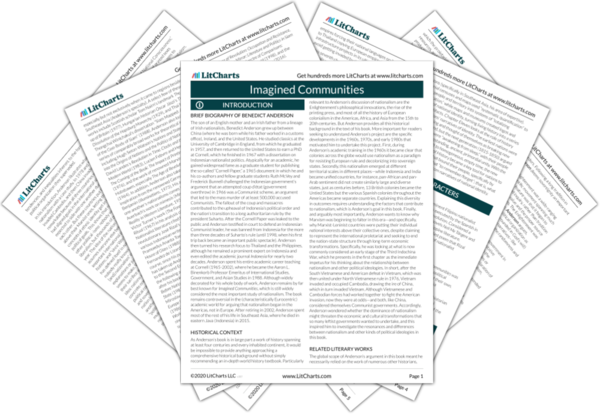The Enlightenment Quotes in Imagined Communities
The century of the Enlightenment, of rationalist secularism, brought with it its own modern darkness. With the ebbing of religious belief, the suffering which belief in part composed did not disappear. Disintegration of paradise: nothing makes fatality more arbitrary. Absurdity of salvation: nothing makes another style of continuity more necessary. What then was required was a secular transformation of fatality into continuity, contingency into meaning. As we shall see, few things were (are) better suited to this end than an idea of nation. If nation-states are widely conceded to be “new” and “historical,” the nations to which they give political expression always loom out of an immemorial past, and, still more important glide into a limitless future. It is the magic of nationalism to turn chance into destiny. With Debray we might say, “Yes, it is quite accidental that I am born French; but after all, France is eternal.”

Unlock explanations and citation info for this and every other Imagined Communities quote.
Plus so much more...
Get LitCharts A+What I am proposing is that neither economic interest, Liberalism, nor Enlightenment could, or did, create in themselves the kind, or shape, of imagined community to be defended from these regimes’ depredations; to put it another way, none provided the framework of a new consciousness—the scarcely-seen periphery of its vision—as opposed to centre-field objects of its admiration or disgust. In accomplishing this specific task, pilgrim creole functionaries and provincial creole printmen played the decisive historic role.












